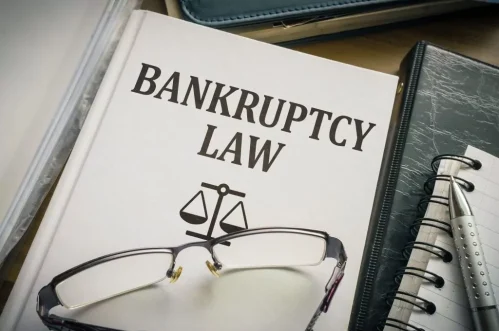Bankruptcy and the Law

The law governing Bankruptcy in England and Wales is primarily the Insolvency Act of 1986. However major amendments were introduced by the Enterprise Act of 2002.
- The Insolvency and Enterprise Acts
- Your Pension and Bankruptcy
- Publication of Bankruptcy in the Newspaper
- Early Discharge
- Ongoing Payments towards Debts
- Buying back Interest in Property
Want help to go bankrupt? Give us a call (0800 044 3194) or click here to complete the form below and we’ll call you back
The information given on this page relates to going bankrupt in England or Wales. The rules and laws in Northern Ireland and Scotland are different.
The Insolvency Act 1986 and Enterprise Act 2002
The Insolvency Act (1986) is the foundation of bankruptcy law in England and Wales. It defines who can go bankrupt and the type of debt that can be included. It also prescribes what will happen to an individual’s assets.
However major changes to bankruptcy law were introduced with the Enterprise Act (2002). The Act reduced the standard length of bankruptcy from 2-3 years to just 12 months. After this time the bankrupt person is automatically discharged.
In addition the Official Receiver must now act to release the equity from a bankrupt person’s property within 3 years. If they have not taken appropriate action by that time the beneficial interest is automatically returned to individual.
Your Pension and Bankruptcy
The Welfare Reform & Pensions Act 1999 (introduced 29th May 2000) made changes to the way an individual’s pension fund is affected by Bankruptcy.
If you went bankrupt before May 2000 any pension fund existing on the start date was included as part of your assets. As such it was (and still is) available to the Official Receiver (OR) for the repayment of your debts.
However since May 2000 as a result of the Welfare Reform and Pensions Act pension funds are now exempt from Bankruptcy. Any money already paid into a pension fund on the date of bankruptcy cannot be touched by the OR.
If you reach the age where you can start drawing your pension during your bankrupt you cannot be forced to do so (Horton v Henry – Court of Appeal, Oct 16).
Publication of Bankruptcy in the Newspaper
In April 2009 the rules surrounding the publication of bankruptcy in England and Wales were changed. Since that date the Official Receiver now no longer has to advertise bankruptcy in the local newspaper.
The option to advertise remains available if the OR feels it is appropriate to do so. However this would be extremely rare.
A bankrupt person’s details are still recorded in the Insolvency Register which is publicly accessible via the internet. The details if each bankruptcy are also archived in the London Gazette.
All bankruptcies in Northern Ireland are still advertised in the Friday edition of the Belfast Telegraph.
Early Discharge from Bankruptcy
The most recent change to the rules governing bankruptcy was introduced on the 1st October 2013 by the Enterprise and Regulatory Reform Act 2013 (section 73 and Part 3 of Schedule 21).
Before this Act the Official Receiver (OR) had the option to grant early discharge from bankruptcy. This might have happend if they concluded there was no reasonable prospect of the bankrupt ever being able to pay anything towards their debts.
However the Enterprise and Regulatory Reform Act 2013 took away this option. Now everyone who is declared bankrupt must remain so for a minimum of 12 months. They cannot be given an early discharge.
Debt Payments during Bankruptcy
On the 1st December 2010 the rules surrounding how much a bankrupt person has to pay towards their debt was changed.
Prior to that date if you had disposable income of up to £100 you would be able to keep that money. If your disposable income was greater than £100 you would have had to make a payment towards your debt based on a percentage of your disposable income.
Since 1st December 2010 the Official Receiver must now insist you pay 100% of your disposable income towards your debts. As a result you are likely to have to make payments even if your disposable income is less than £50 a month.
Buying back the beneficial interest in a Property
In January 2011 the rules changed about how a bankrupt person can buy back the beneficial interest in their property. Previously if you owned a property with equity of £5000 or less you could offer the Official Receiver (OR) an amount of less than the value of the equity. If the equity was less than £1000 the beneficial interest could have been bought back for just £1.
However since January 2011 if there is equity in your property you will have to offer an amount equal to the value of the equity to buy back your beneficial interest. If there is no equity then you have to pay a £1000 plus solicitor’s costs.
If after 2 years and 3 months if you have not bought back your beneficial interest and the equity in the property is less than £1000 the OR must simply hand it back to you for nothing. However if the equity is more than £1000 then your beneficial interest can only be bought back by paying an amount equal to the equity at that time.